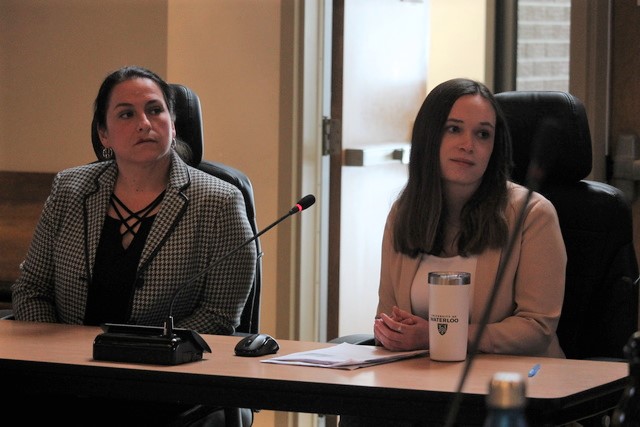Minden Hills councillors passed Greenhouse gas emissions (GHG) targets at their Feb. 27 meeting. They are a 20 per cent reduction in buildings, 10 per cent for fleet and 10 per cent for waste by 2030. Council resolved to review yearly targets.
County planner Charlsey White and climate change coordinator Korey McKay spoke at the meeting. McKay broke down Minden’s current GHG inventory. The bulk comes from waste, at 81 per cent, then fleet (12 per cent) and buildings (six per cent).
She said the key to reducing waste GHG is education and initiatives to cut what goes into landfills and diverting waste; exploring the opportunity for larger changes; and improving data. With fleet, it’s about anti-idling potential and introducing some hybrid and electric vehicles. As for building, McKay said the old community centre accounted for 28 per cent of emissions.
During a short discussion, Coun. Bob Carter said the township should be setting aspirational goals. “We must try to reach it. If we make it, great. If we fail, it’s at least something to aspire to.”
Coun. Pam Sayne said the township hired a consultant to do a building efficiency report and she wanted that now to be put into practice, saying it’s the key for the township right now. She added when it comes to fleet, technology is changing very quickly. She also raised the issue of a composting program, noting it had been talked about at the township but never put into place. She’d like to see the township move in that direction.
McKay said methane gas at landfills is a big emitter of GHG.
Coun. Jean Neville said municipalities should ease laws around backyard chickens. “People are all hung up on disease for some unknown reason.” She said supplying compost to animals would largely eliminate the problem.
Mayor Brent Devolin added, “we’re not interested in setting targets where we don’t even break a sweat. The elephant in the room is landfills. The waste part is the most complex part and the one we know the least about.”
He queried whether they should set higher targets. However, Carter said he did not feel it was right for council to arbitrarily establish targets, when White and McKay had done the research. He wondered about delaying for 12 months and going back to Minden’s climate change action committee.
McKay acknowledged the waste data was not as good as for buildings and fleet. However, she said once they get more specific data, such as future diversion rates, they can adjust the 10 per cent figure.
“Start at 10 per cent, then refine.”
Sayne said she wanted to affirm targets on the day and not defer.
Director of public works Travis Wilson said later in the meeting that his department was working on a small-scale waste audit and he would report back to council.





